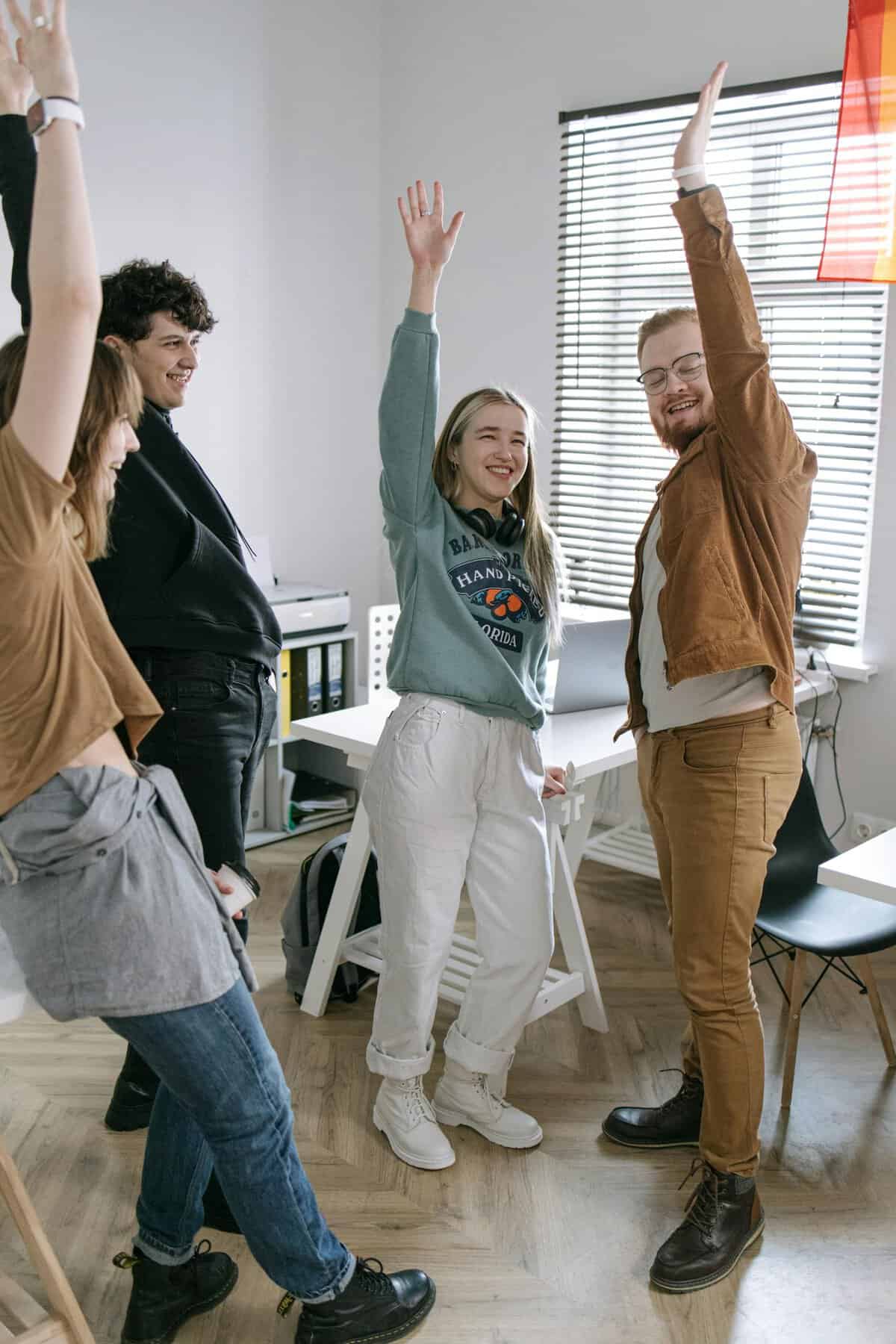
Table of Contents
Introduction
Have you ever walked into a job interview and felt pressured to make a good impression? You’re not alone.
First impressions are crucial, especially in the professional world. And guess what? Your body language plays a massive role—sometimes even more extensive than your resume or what you say in response to interview questions. How you sit, your expressions, and even your handshake can tell hiring managers much about you before you answer their first question.
Studies have shown that non-verbal cues can account for over 55% of communication. Imagine that—more than half of the impression you make during the interview process isn’t about your clever answers or well-rehearsed pitches. It’s about how you present yourself physically.
Let’s explore how you can harness the power of body language to make a lasting, positive first impression!
1. Maintain eye contact to show confidence and sincerity.
Maintaining eye contact is crucial because it helps establish trust and rapport with your interviewer. When you look someone in the eyes, you show that you are confident, attentive, and engaged in the conversation.
This simple act can make you appear more trustworthy and sincere, qualities that every employer values. Moreover, good eye contact can help you become a strong communicator, making it easier to connect personally with your interviewer.
So, please don’t underestimate the power of a steady gaze; it can significantly impact how you’re perceived and tip the scales in your favor.

2. Use open and approachable body language
Offer a friendly smile.
One of the simplest ways to appear approachable in an interview setting is to smile. A sincere smile, including yourself, can put everyone at ease and signal friendliness and warmth. It also shows that you are open and enthusiastic about the interaction.
Lean slightly forward.
Leaning slightly forward while sitting can indicate that you are interested and engaged in the conversation. This subtle action shows the interviewer that you are actively listening and invested in what they say. Be careful not to slouch or lean too much, as this can invade personal space and negatively impact your nonverbal communication.
Mirror the interviewer’s body language.
Mirroring the interviewer’s body language is a powerful way to build rapport and show that you are in sync with them. If they lean back, you can do the same. If they use hand gestures while talking, try incorporating subtle gestures too. This technique can create a sense of connection and make the interaction feel more comfortable for both parties during the interview process.
Uncross arms
Crossing arms and legs can signal defensiveness or closed-mindedness. Keeping your body language open and welcoming in an interview is important. Uncrossing your arms and legs can help convey a sense of openness and receptivity, allowing for better communication between you and the interviewer.
Maintain eye contact.
Maintaining eye contact is another key aspect of nonverbal communication during an interview. This shows confidence, attentiveness, and sincerity. Avoid staring too intensely or breaking eye contact too frequently, as this can make the other person uncomfortable.
Instead, maintain natural, relaxed eye contact while speaking and listening.
3. Smile and show enthusiasm for the opportunity.
Expressing excitement about the position and the company demonstrates that you are genuinely interested and motivated. Enthusiasm also suggests that you will likely be more engaged and proactive as an employee, contributing positively to the team and the organization.
Moreover, your enthusiasm can be infectious, creating a positive atmosphere during the interview and leaving a lasting impression on the interviewer. Remember, enthusiasm is not just about what you say but also about how you say it—your tone of voice, facial expressions, and body language all play a crucial role.
4. Use purposeful gestures to emphasize points.
When you use gestures intentionally, you emphasize and clarify your message, making it more engaging and memorable for the interviewer.
For instance, nodding while speaking can signal confidence and certainty in your responses to interview questions, while open hand gestures convey honesty and openness. These nonverbal cues work with your words to create a cohesive and compelling narrative, making you appear more dynamic and persuasive.
Additionally, gestures can convey enthusiasm and passion, positively impacting the interviewer and demonstrating your genuine interest in the role. By thoughtfully incorporating gestures into your communication, you present yourself as a confident, energetic, and articulate candidate, leaving a strong and positive first impression.
5. Be mindful of cultural differences in body language.
Cultural norms around body language can vary significantly between Asia and Europe, making it essential to be mindful of these differences during an interview.
In many Asian cultures, more subdued and restrained body language is often seen as respectful and appropriate. For example, maintaining a modest posture and avoiding overly expressive gestures can be viewed positively, signifying humility and attentiveness.
On the other hand, in much of Europe, a certain level of expressiveness is often expected and appreciated. Gestures considered excessive in Asia can be interpreted as enthusiasm and assertiveness in a European context.
For instance, in countries like Japan and South Korea, frequent eye contact can be perceived as intrusive or aggressive, whereas in countries like Germany and Italy, maintaining eye contact is a sign of confidence and sincerity. Similarly, a firm handshake is a standard greeting in Europe, indicating trust and professionalism, but in some Asian cultures, a softer handshake or a slight bow might be more appropriate.
Understanding and respecting these cultural nuances can help create a positive impression during an interview. It demonstrates cultural awareness and sensitivity, showing that you are a strong candidate and an interviewee who respects and adapts to different cultural contexts.
Conclusion
in conclusion, all these 5 points will help you get comfortable and successful with your interview. Dress professionally, arrive on time, and make an excellent first impression with a smile and confident body language. And most importantly, be yourself!
Authenticity and genuine interest in the company will go a long way in making a lasting impression during an interview.
